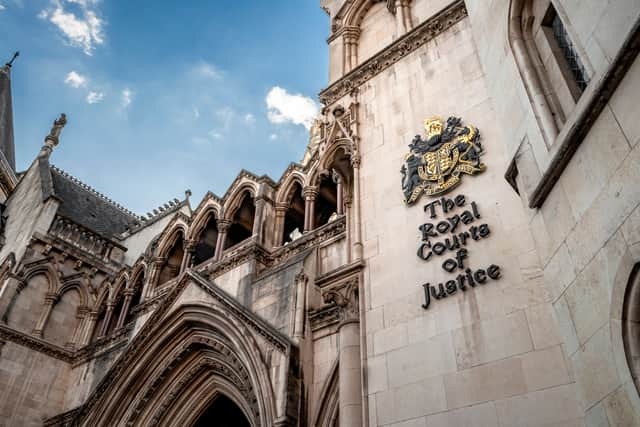Terrorists face longer jail terms as courts in England and Wales given new sentencing powers
and live on Freeview channel 276
Terrorists face longer jail terms as courts in England and Wales will be given powers to hand out tougher punishments under fresh sentencing guidelines.
The Sentencing Council guidance for magistrates and judges, which comes into force on 1 October, will reflect increases in maximum penalties and other reforms introduced by the Counter-Terrorism and Border Security Act 2019 and the Counter-Terrorism and Sentencing Act 2021.


Maximum prison sentence to increase
Advertisement
Hide AdAdvertisement
Hide AdThe revisions include guidance on sentencing criminals who meet the criteria for a “serious terrorism sentence” if convicted of preparation of terrorist acts and explosive substances.
This new sentence carries a minimum penalty of 14 years in jail, unless exceptional circumstances apply.
The guidelines will also reflect changes in the law allowing those prosecuted for the “encouragement of terrorism” to receive a maximum of 15 years in prison, up from seven.
A jail sentence of 14 years can now be handed to those who view or download online material to use for a terrorist act, and there is an increase from 10 to 14 years maximum prison sentence for membership and support of terrorist causes offences.
Advertisement
Hide AdAdvertisement
Hide AdAdditionally, guidance on funding terrorism crimes will now consider the extent to which an offender knew money or property will or may be used for this purpose.
High Court judge Maura McGowan, a Sentencing Council member, said: “Terrorism offences are thankfully rare but they are serious and can cover a wide range of factual circumstances, making them difficult and sensitive offences to sentence.
“For this reason, the council has ensured that the guidelines are kept up to date and include additional guidance for sentencers.
“These revised guidelines will ensure consistency and transparency in the sentencing of these offences.”
Justice Secretary Dominic Raab added: “These new guidelines will ensure sentences reflect the severity of the crime and keep dangerous extremists off our streets for longer.”
